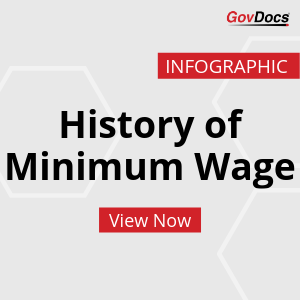LABOR LAW NEWS
Denver City Council Considers $15-plus Minimum Wage
By Kris Janisch
Published Oct. 8, 2019

This spring, Colorado lawmakers repealed a ban on cities’ ability to set their own minimum wage, opening the door for Denver’s push for an increased rate. It’s the first city in Colorado to pursue its own minimum wage under the new law.
Update: The city has approved the measure, which is now in effect.
Just months after Colorado gave cities the power to set their own minimum wage rates, Denver city leaders are looking to do just that. A Denver City Council proposal would take the city’s minimum wage to more than $15 an hour in 2021.
This spring, Colorado lawmakers repealed a ban on cities’ ability to set their own minimum wage, opening the door for Denver’s push for an increased rate. It’s the first city in Colorado to pursue its own minimum wage under the new law.
Related: Early 2020 State Minimum Wage Increases
Denver Minimum Wage
If passed, the Denver proposal would increase the minimum wage for non-tipped workers to:
- $13.80 on Jan. 1, 2020
- $15.87 in 2021
The current minimum wage for tipped employees is in Colorado is $8.08 an hour. Under the proposal, the minimum wage rates for employees who receive tips would be:
- $10.78 on Jan. 1, 2020
- $12.85 in 2021
After that, increases would be tied to the Consumer Price Index, not to exceed 15 percent per year. The rate would apply to anyone who works in Denver.
More than 67,000 people in Denver earn less than $13.80 an hour at this time, a spokesperson for the mayor told The Denver Post.
Currently, the minimum wage in Colorado is $11.10 an hour, well above the federal rate of $7.25. The state will go to a $12 minimum wage in 2020.
The Denver City Council could vote on the proposal, initially introduced in mid-September, as soon as this November.
Minimum Wage Nationwide
 As the federal minimum wage rate hasn’t increased since 2009, cities, counties and states are taking up the matter themselves.
As the federal minimum wage rate hasn’t increased since 2009, cities, counties and states are taking up the matter themselves.
Guide: County and City Minimum Wage Rate Updates – July 1, 2019
Most recently, Connecticut and Delaware saw minimum wage rate increases on Oct. 1. As the calendar turns to 2020, there will be additional changes in many jurisdictions.
Much of the push behind minimum wage increases is the “Fight for $15,” a movement that aims to raise the rate to $15 nationwide. Already this year, Illinois, Maryland and New Jersey have enacted laws to eventually hit a $15 minimum wage.
Meanwhile, Nevada recently passed legislation to increase its minimum wage, and lawmakers in Kentucky plan to introduce legislation for a $15 an hour minimum wage during the next legislative session.
And cities and counties across the country, especially in politically progressive states, continue to set their own rates.
Minimum Wage and Wage Theft
Compliance officers, payroll professionals and others in the human resources field must keep a close eye on minimum wage to avoid complications that may arise from incorrect employee payments.
Employers’ liability can range beyond the repayment of back wages:
- Recalculation of regular rate of pay (for weeks in which overtime was earned)
- Recalculation and payment of overtime based on adjusted regular rate of pay
- Corrected wage statements
- Corrected W-2s (if incorrect wages crosses tax years)
- Potential penalties
- Time/resources to correct the payments/wage statements/W-2s
- Employee relations concerns
Ultimately, companies must develop systems to maintain proper payment rates to remain compliant with current laws.
This Labor Law News Blog is intended for market awareness only, it is not to be used for legal advice or counsel.
Keep Informed
with GovDocs Labor Law News
Who is GovDocs?
GovDocs simplifies the complexity of employment law management (ELM) for large, multilocation employers across all industries. We offer a suite of innovative compliance products, including labor law postings, data software applications and other program management tools, to ease the day-to-day responsibilities of human resources, compensation, legal and finance teams.
Have less than 30 locations?
The GovDocs Poster Store simplifies the complexity of posting compliance for employers with less than 30 locations across all industries. We offer a variety of posting products to meet your labor law compliance needs, including federal and state posters; county and city poster packages; and other HR posters. Plus, when you purchase posters with GovDocs Update Service, you ensure your locations automatically receive updated posters whenever changes occur.


